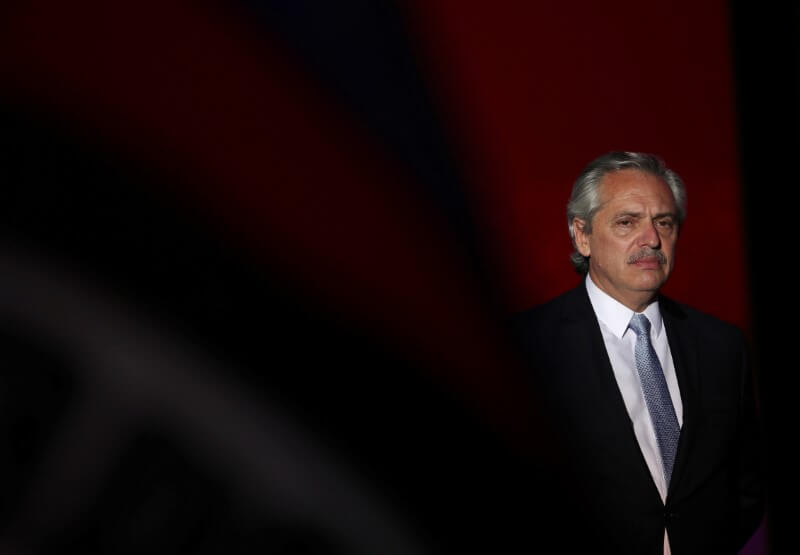By Maximilian Heath
BUENOS AIRES (Reuters) – President Alberto Fernandez said he has set a March 31 deadline to renegotiate Argentina’s rampant public debt and that a more “innovative” International Monetary Fund approves of the direction his government is taking.
Argentina is in talks with bondholders and other creditors to restructure about $100 billion in debt, among them the IMF to whom it owes about $44 billion.
“I think that from here to March 31 our trajectory is going to be very clear,” Fernandez said in an interview published on Sunday by the online news site El Cohete A La Luna. “That is the ceiling we have set, because there are significant maturities.”
Fernandez, a moderate center-left Peronist, was elected in October with a mandate to end painful fiscal cuts implemented by his predecessor, Mauricio Macri.
Supporters of Fernandez expect more state spending to help families struggling with low growth, rising poverty and inflation over 50%.
After assuming the presidency a little over a month ago, his government has announced plans to hike taxes on farm exports, as well as efforts to gain revenue from foreign assets and Argentine tourism dollars spent abroad.
The measures brought criticism from the opposition but, according to Fernandez, won the approval of the IMF.
“Everything we have proposed so far has been seen as essential starting points for setting the economy straight,” Fernandez said of his government’s initial talks with the global financial institution.
IMF officials in Buenos Aires did not immediately respond to a request for comment.
Fernandez said the new IMF managing director, Kristalina Georgieva, was aiming for a more “innovative” approach than her predecessor, Christine Lagarde.
“In the Lagarde era, they would not have taken all this sympathetically, they would have seen it in a critical way,” he said. “It’s a good start but I think there is a long way to go.”
(Reporting by Maximillian Heath; Writing by Aislinn Laing; Editing by Daniel Wallis)



















